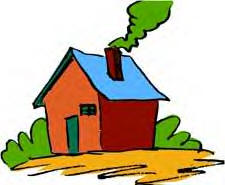Definition:
Diarrhea is the sudden increase in the frequency and looseness of stools
* The main risk of diarrhea is dehydration
* Loose or runny stools do not cause dehydration
* Frequent, watery stools can cause dehydration
Causes:
* Viral gastroenteritis (viral infection of the stomach and intestines) is the usual cause
* Bacteria (eg, Salmonella, Shigella) cause some diarrhea. The main food-borne bacteria are Campylobacter, Salmonella, and Escherichia coli.
* Food Poisoning: Rapid onset of vomiting and diarrhea within hours after eating a food contaminated with toxins (eg, cream dishes that are not properly refrigerated). Symptoms usually resolve in fewer than 24 hours without a need for medical care.
* Giardia (a parasite) occasionally, especially in child care centres.
How to Recognize Dehydration:
* Dehydration means that the body has lost excessive fluids, usually from vomiting or diarrhea. An associated weight loss of more than 3% is required. In general, mild diarrhea, mild vomiting, or a mild decrease in fluid intake does not cause dehydration.
* Dehydration is the most important complication of diarrhea
* The following are signs of dehydration:
– Decreased urination (no urine in more than 8 hours) occurs early in the process of dehydration. So does a dark-yellow, concentrated yellow. If the urine is light straw coloured, your child is not dehydrated.
– Dry tongue and inside of the mouth. Dry lips are not helpful.
– Dry eyes with decreased or absent tears
– In infants, a depressed or sunken soft spot
– Delayed capillary refill longer than 2 seconds. This refers to the return of a pink color to the thumbnail after you press it and make it pale. Ask your child’s doctor to teach you how to do this test.
– Irritable, tired out, or acting ill. If your child is alert, happy, and playful, he is not dehydrated.
– A child with severe dehydration becomes too weak to stand or very dizzy if he tries to stand.
Definition of Diarrhea in Breastfed Infants:
• The stools of a breastfed infant are normal unless they contain mucus or blood, or develop a new bad odor.
* The looseness (normally runny and seedy), color (normally yellow), and frequency of stools (normally more than 6 a day) are not much help. Breastfed babies may normally even pass some green stools surrounded by a water ring (normal bile can come out green if intestinal transit time is rapid enough).
* During the first 1 to 2 months of life, the breastfed baby may normally pass a stool after each feeding. (However, if an infant’s stools abruptly increase in number and looseness and persist for 3 or more stools, the baby probably has diarrhea)
* Other clues to diarrhea are poor eating, acting sick, or fever.
Definition of Diarrhea in Formula-Fed Infants:
* Formula-fed babies pass 1 to 8 stools per day during the first week, then 1 to 4 per day until 2 months of age.
* The stools are yellow in colour and peanut butter in consistency
* Formula-fed newborns have true diarrhea if the stools abruptly increase in number or looseness and persist for 3 or more stools, become watery or very runny, contain mucus or blood, or develop a new bad odour.
* Other clues to diarrhea are poor eating, acting sick, or fever
* After 2 months of age, most infants pass 1 or 2 stools per day (or 1 every other day) and no longer appear to have mild diarrhea.
Return to School: Your child can return to child care or school after the stools are formed and the fever is gone. The school-aged child can return if the diarrhea is mild and the child has good control over loose stools.
 Call 911 Now (Your Child May Need an Ambulance) If:
Call 911 Now (Your Child May Need an Ambulance) If:
Not moving or too weak to stand
Call Your Doctor Now (or in Alberta, Canada call 780-408-LINK) If:
* Your child looks or acts very sick
* Signs of dehydration (eg, no urine longer than 8 hours, no tears with crying, very dry mouth)
* Blood in the stool
* Weak immune system (eg, sickle cell disease, HIV, chemotherapy, organ transplant, chronic steroids)
* Abdominal pain present longer than 2 hours
* Vomiting clear liquids 3 or more times
* Child is younger than 1 month with 3 or more diarrhea stools (mucus, bad odor, increased looseness)
* Passed more than 8 diarrhea stools in the last 8 hours
* Severe diarrhea while taking a medicine that could cause diarrhea (eg, antibiotics)
* Fever above 104°F (40°C) and not improved 2 hours after fever medicine
* Child is younger than 12 weeks with fever above 100.4°F (38.0°C) rectally (CAUTION: Do NOT give your baby any fever medicine before being seen)
Call Your Doctor Within 24 Hours (Between 9:00 am and 4:00 pm) If:
* You think your child needs to be seen
* Pus in the stool present for more than 2 days
* Loss of bowel control in a toilet-trained child occurs 3 or more times
* Fever present for more than 3 days
* Close contact with person or animal who has bacterial diarrhea
* Contact with reptile (snake, lizard, turtle) in previous 14 days
* Travel to country at risk for bacterial diarrhea within past month
Call Your Doctor During Weekday Office Hours If:
* You have other questions or concerns
* Diarrhea persists more than 2 weeks
* Loose stools are a chronic problem
Parent Care at Home If:
Mild diarrhea (probably viral gastroenteritis) and you don’t think your child needs to be seen
 Home Care Advice for Diarrhea:
Home Care Advice for Diarrhea:
1. Reassurance:
* Most diarrhea is caused by a viral infection of the intestines
* Diarrhea is the body’s way of getting rid of the germs
* Here are some tips on how to keep ahead of the fluid losses
2. Mild Diarrhea:
* Continue regular diet
* Eat more starchy foods (eg, cereal, crackers, rice)
* Drink more fluids. Formula or milk are good balanced fluids for diarrhea (EXCEPTION: Avoid all fruit juices and soft drinks because they make diarrhea worse)
3. Formula-Fed Infants With Frequent, Watery Diarrhea: Start Oral Rehydration Solution (ORS)
* ORS (eg, Pedialyte, store brand) is a special electrolyte solution that can prevent dehydration. It’s readily available in supermarkets and drugstores.
* Start ORS for frequent, watery diarrhea (Note: formula is fine for average diarrhea)
* Use ORS alone for 4-6 hours to prevent dehydration. Offer unlimited amounts.
* If ORS is not available, use formula prepared in the usual way (unlimited amounts) until you can get some.
* Avoid Jell-O water, sports drinks, and fruit juice
4. Returning to Formula:
* Go back to formula by 6 hours at the latest (Reason: child needs the calories)
* Use formula prepared in the usual way (Reason: it contains adequate water)
* Offer formula more frequently than you normally do
* Lactose: Regular formula is fine for most diarrhea. Lactose-free formulas (soy formula) are only needed for watery diarrhea persisting more than 3 days.
* Extra ORS: Also give 2 to 4 oz (30 to 120 mL) of ORS after every large, watery stool
5. Solids:
Infants Older Than 4 Months: Continue solids (eg, rice cereal, strained bananas, mashed potatoes).
6. Breastfed Infants With Frequent, Watery Diarrhea:
* Continue breastfeeding at more frequent intervals. Continue solids as for formula fed.
* Offer 2 to 4 oz (60 to 120 mL) ORS (eg, Pedialyte) after every large, watery stool (especially if urine is dark) in addition to breastfeeding.
7. Children Older Than 1 Year With Frequent, Watery Diarrhea:
* Fluids: Offer unlimited fluids. If taking solids, give water or half-strength Gatorade. If child refuses solids, give milk or formula.
* Avoid all fruit juices and soft drinks (Reason: make diarrhea worse)
* ORS (eg, Pedialyte) is rarely needed, but for severe diarrhea, also give 4 to 8 oz (120 to 240 mL) of ORS after every large, watery stool.
* Solids: Starchy foods are absorbed best. Give dried cereals, oatmeal, bread, crackers, noodles, mashed potatoes, or rice. Pretzels or salty crackers can help meet sodium needs.
8. Probiotics:
* Probiotics contain healthy bacteria (lactobacilli) that can replace unhealthy bacteria in the gastrointestinal tract.
* Yogurt is the easiest source of probiotics. If your child is older than 12 months, give 2 to 6 oz (60 to 180 mL) of yogurt twice daily (Note: today, almost all yogurts are “active culture”)
* Probiotic supplements in granules, tablets, or capsules are also available in health food stores.
9. Diaper Rash: Wash buttocks after each stool to prevent a bad diaper rash. Consider applying a protective ointment (eg, petroleum jelly) around the anus to protect the skin.
10. Contagiousness: Your child can return to child care or school after the stools are formed and the fever is gone. The school-aged child can return if the diarrhea is mild and the child has good control over loose stools.
11. Expected Course: Viral diarrhea lasts 5 to 14 days. Severe diarrhea only occurs on the first 1 or 2 days, but loose stools can persist for 1 to 2 weeks.
12. Call Your Doctor If:
* Signs of dehydration occur
* Diarrhea persists more than 2 weeks
* Your child becomes worse
Based on recommendations/advice in “My Child is Sick; Expert Advice for Managing Common Illnesses and Injuries”, 14th Edition, by Barton D. Schmitt
